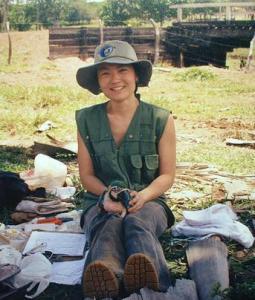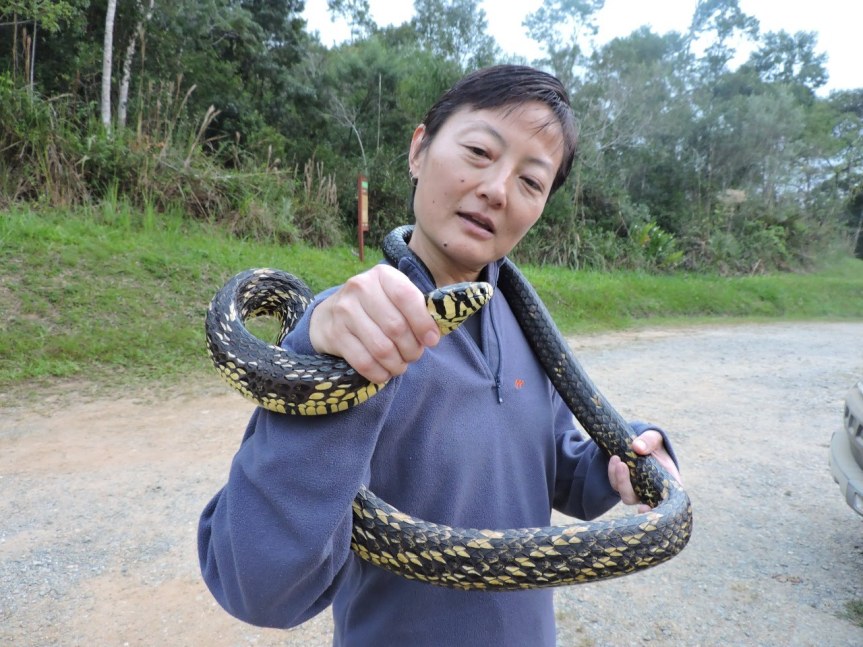This July and August, we’re running a special series of blog posts profiling AOS members around the world, in honor of the recent change to AOS’s bylaws eliminating any reference specifying the Western Hemisphere as the Society’s geographic sphere of influence. This week, one final bonus post: meet Cristina Miyaki, a professor in Brazil.
What’s your current job title and affiliation?
I’m an Associate Professor at the Instituto de Biociências (Biosciences Institute) at the University of São Paulo.
What are you working on right now?
My current research falls into two main areas. First is the biogeography of the Atlantic forest and its past connections with other humid South American forests. We infer the evolutionary history of birds at various taxonomic levels, between and within species, to try to understand the history of this important biome that is one of the top five biodiversity hotspots in the world. This information is helping plan the locations of important areas for conservation.

The other area is the conservation genetics of Psitacid parrots. We use molecular markers to help plan conservation actions for endangered species. Currently, we are working with the Hyacinth, Spix’s, Lear’s, and Blue-and-Gold macaws. We estimate the genetic similarity between pairs of individuals to help recommend the best breeding couples in captive reproduction programs and to understand the breeding biology of wild populations.
When did you join AOS, and why did you decide to join?
I became involved with AOS when I was selected as an Honorary Fellow in 2005. It’s an important scientific society, and it gathers experts on various fields in ornithology and organizes important meetings where I meet friends who are excellent scientists. At the meetings I also learn a lot about science and technologies and am exposed to new and exciting ideas. And after fourteen years as an Honorary Fellow, this year I became a Fellow!
What do you see as the best benefit of being an AOS member?
Meeting people with similar interests is the most important part of being a member of any scientific society. Through a society, we can find potential collaborators in various aspects that are essential in any study, from planning a project to publishing a paper.
